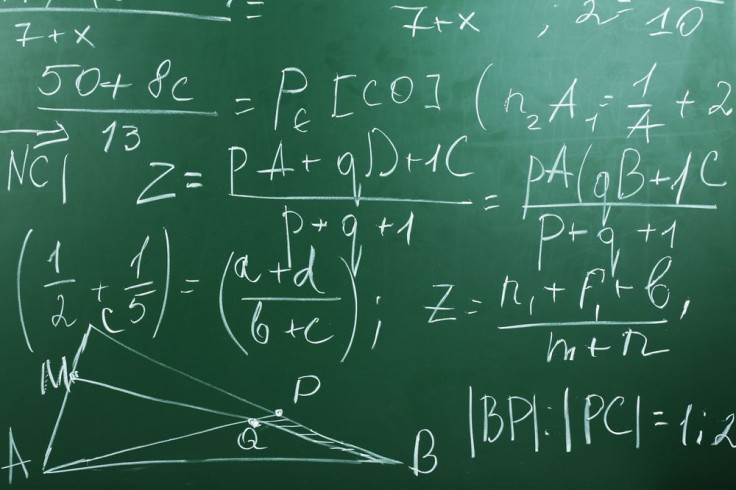Parenting And Bad Math: Parents' Negative Attitudes Can Cause Children To Develop Math Anxiety

People who are bad at math tend to blame Mom and Dad and, according to a recent study, they may be completely right. Although genetics play a large role in our intelligence, researchers found that parents’ attitude toward math can also heavily influence their children’s grades.
We all know that some people are better at math than others. Oftentimes, these skills (or lack-thereof) run in the family. Recently, a team of researchers from the University of Chicago investigated whether people’s mathematical proficiency was more largely due to genetic or environmental factors. The team analyzed the math skills of more than 400 first- and second-graders once at the beginning of the school year and once toward the end. The children were also asked to explain how math-related situations, such as tests or being called on by a teacher to answer an addition question, made them feel, the press release reported. The children’s parents were also surveyed on their attitudes toward math and asked how often on average they helped their kids with their homework over the school year.
Results revealed that by the end of the school year having a parent with math anxiety was not the best indicator of the students’ grades. Instead, it was observed that only students whose “math-anxious” parents actively helped them with their schoolwork were likely to learn less over the course of the school year and develop a similar math anxiety. Students with math-anxious parents that did not help them with their school work did not display the same results. This would suggest that it’s not only the parents’ genes that contribute to their children’s poor math skills, but also the tense environment that some parents create during homework sessions.
Just Hire A Tutor
"We often don't think about how important parents' own attitudes are in determining their children's academic achievement," explained co-author Sian Beilock in a statement. "But our work suggests that if a parent is walking around saying, 'Oh, I don't like math' or 'This stuff makes me nervous,' kids pick up on this messaging and it affects their success."
Another recent study backs this theory, finding that all areas of intelligence are influenced by the same genes. According to the research, children inherit a universal intelligence in all subjects and those who struggle in only one subject (such as math) do so because of environmental factors, not a personal lack of skill.
However, this theory may not explain all cases of math anxiety. For some students, inheriting both a genetic predisposition toward anxiety and a lower academic potential may result in a hereditary form of math anxiety. A 2014 study conducted on 216 identical twins and 298 same-sex fraternal twins revealed that as much as 40 percent of the individual differences in math anxiety could be explained by genetics.
“If you have these genetic risk factors for math anxiety and then you have negative experiences in math classes, it may make learning that much harder,” lead research of the study, Dr. Stephen Petrill explained, as reported by Medical Xpress.
Math anxiety is a real phenomenon experienced by many. It is not a reflection of a student’s true ability in math but rather an emotional problem that can seriously interfere with their learning process. According to the researchers, finding the root cause of a student’s math anxiety could help lead to better intervention programs to help students reach their fullest potential.
Source: Maloney EA, Ramirez G, Gunderson EA, Levine SC, Beilock SL. Intergenerational Effects of Parents’ Math Anxiety on Children’s Math Achievement and Anxiety. Psychological Science. 2015.



























